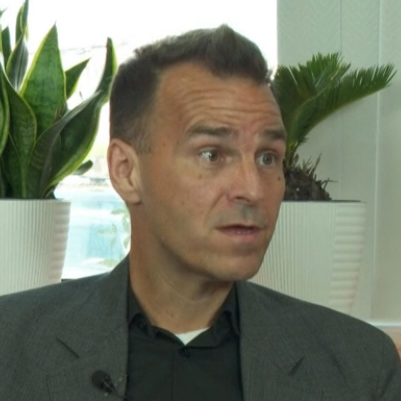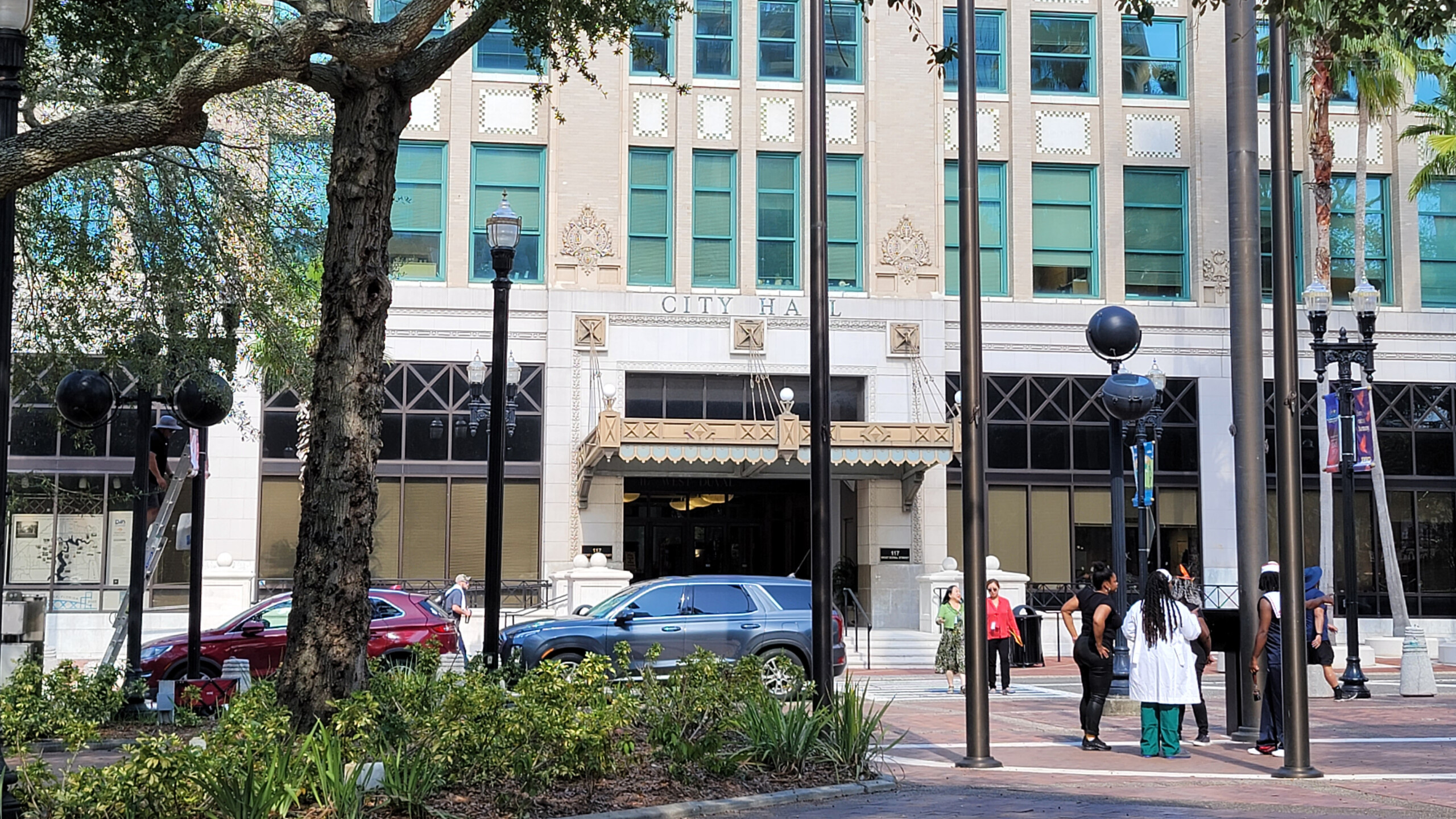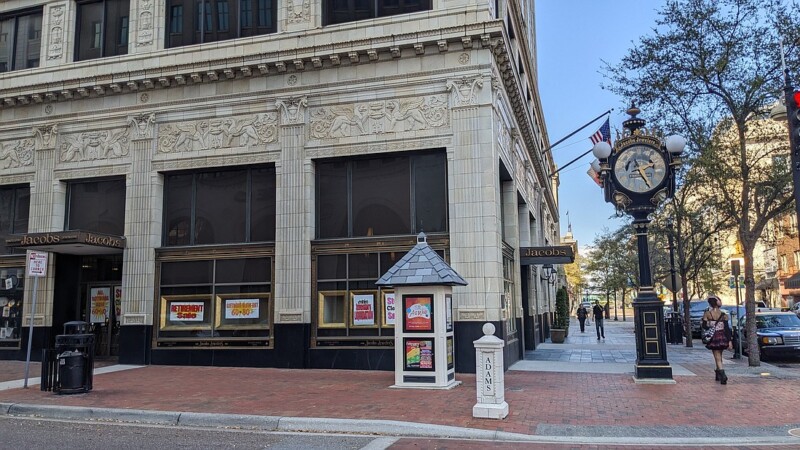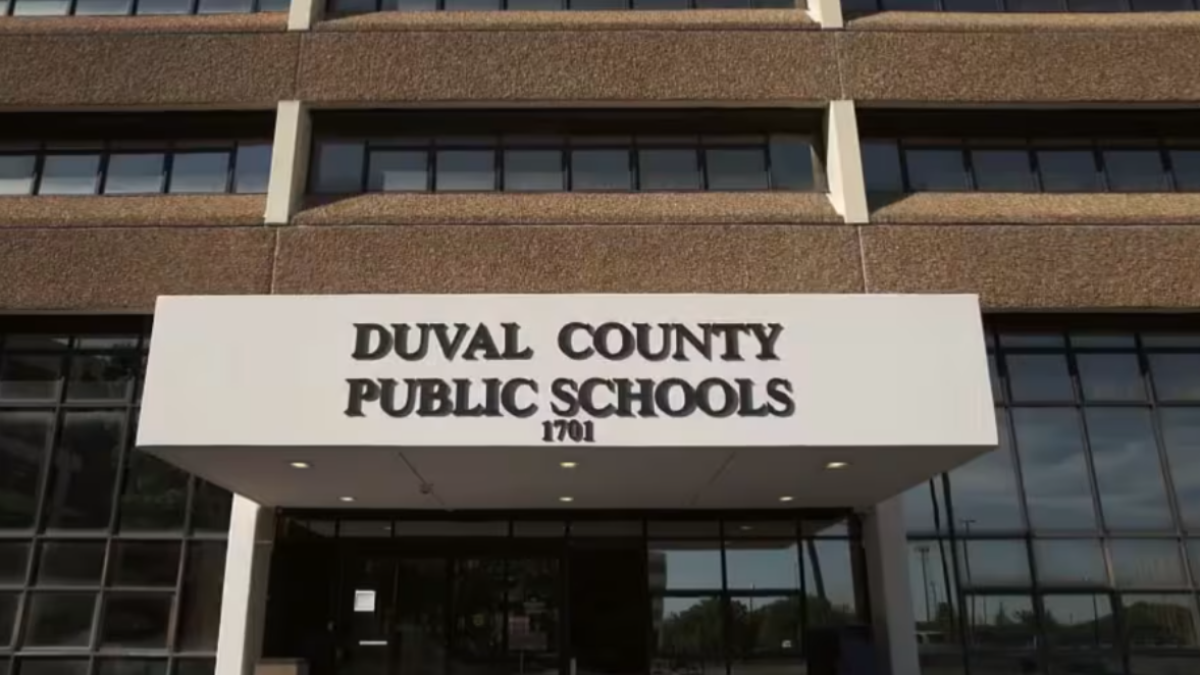
Government is at a low ebb when it comes to accessibility, and in Jacksonville, you can find support for that claim on all levels.
Consider the Duval County Public Schools, which are closing in on the district’s latest superintendent pick, but not before attempting to abridge sunshine and transparency.
Setting up last week’s questions for superintendent candidates at the Schultz Center, a communications person for the district urged media to withhold publication of the questions asked on Monday until Wednesday.
The goal apparently was to ensure that neither of the superintendent finalists would rip off each others’ answers.
By midday Monday, the district relented on that condition. Which is a good thing, because it’s blatantly illegal to attempt to embargo remarks made in the public record.
The mayor’s office is guilty of something similar regarding the stadium proposal – and it was an unnecessary gaffe, given that they brought in the initial city obligation well below the original estimate of roughly a billion dollars in city encumbrance.
With $625 million for the renovation and another $150 million in deferred maintenance along with $150 million more in the “community benefits” piece of the agreement, the obligation over the course of time – leaving aside financing costs in this high-interest rate environment – translates to a little bit more than a year and a half of the Jacksonville Sheriff’s Office budget.
The numbers sell themselves, at least if you don’t buy the argument that this investment is the embodiment of privatized profits and socialized costs, and if you don’t look too closely at the risk of deferring the pension tax kicking in in the next few years (letting more than $3 billion in pension debt ride for a few years in a high interest rate environment) and extending the Better Jacksonville Plan to handle capital costs for the stadium.
But the administration’s obstinance about releasing the numbers suggested there was something to hide. As did the need to couch the figures in a labyrinthine three-person presentation between Deegan, Jaguars President Mark Lamping, and negotiator Mike Weinstein – who the previous administration, at least according to some very high-level members, kept away from a microphone as much as possible.
Deegan also didn’t stick around to take questions from council members after the PowerPoint presentation to city council.
She should have.
It would have been interesting to hear what some really thought of the deal, at least before the infamous “ex parte” communications the Jags and others, including Daniel Davis’ JAX Chamber, will have with the legislative branch between now and the vote in July.
History tells us that except for the doomed Lot J deal – which fell just one vote short of the necessary supermajority – even the loudest fiscal conservatives on the dais become big government lapdogs when stadium money is to be spent.
The “community huddles” to gather public input are ongoing, of course, and those offer something approaching constituent feedback.
But for better or for worse, the Deegan administration is privileging showmanship and the platform of the mayor’s office to manufacture consent, rather than playing by established rules.
As one former very highly placed mayoral aide put it, it’s generally a good idea to take questions from the legislative branch – and to offer good faith responses to the Fourth Estate’s public records requests. But the administration most steeped in local media, with numerous alums highly placed, seems to understand acutely that the previous norms matter little.
Even now at this writing, reporters await more details than given in the presentation, such as actual term sheets and what the granular details look like.
Beyond sunshine issues in the Democratic-controlled executive branch, there are questionable choices by the City Council also regarding a willingness to hear from constituents, specifically regarding the sham that public comment has become.
At the last council meeting, people had just 60 seconds to make their point, way down from the three minutes once given to them. Many noted that by the time they gave their name and address, their speaking time was exhausted. And even though Deegan was greeted with applause at the same meeting, Council President Ron Salem and others used police presence to threaten people making “demonstrations” by applauding speakers they agree with.
If Deegan can get an ovation, why can’t anyone else giving remarks?
One can argue that none of this actually matters, that people can make their feelings known at the ballot box.
But, as we know from recent local history, elections often don’t present meaningful choices.
Consider 2019’s mayoral race, when Democrats were so cowed by the Lenny Curry political machine that they didn’t run a candidate, with some backing current CFO Anna Brosche, a Republican, for the job to no avail.
That lack of political gumption, it could be argued, gave Curry and his cronies the runway to attempt to push the JEA sale through – an effort that would have worked, perhaps, if Aaron Zahn had been more subtle than a soap opera villain.
Though JEA wasn’t sold, Curry’s second term was a miasma in many ways, hampered by the pandemic on the back end, with tragicomic failures of city services that led to spectacles like people dropping recyclable material off at local parks.
It’s entirely likely Deegan will have a second term at this point. She assuredly will have Shad Khan’s backing, and there doesn’t appear to be a Republican on the scene with the juice to beat her in 2027. If the stadium deal gets through as expected, she has something to run on for the normies who don’t care much about social uplift, fixing the broken promises of Consolidation, and all the other campaign talking points that recur every four years because they aren’t addressed.
Likewise, it’s very rare that a Council member loses re-election unless beset by scandal – the relationships built in the first four years are just too strong for a political neophyte to overcome.
To that end, it would be ideal if the mayor, the city council, and, yes, the School Board acted more like stewards of the public trust who understand the transient nature of their jobs, than as guardians of political fiefdoms.
And to that end, they should ensure that government is in the sunshine and that the most passionate constituents are heard whenever there is an opportunity.







